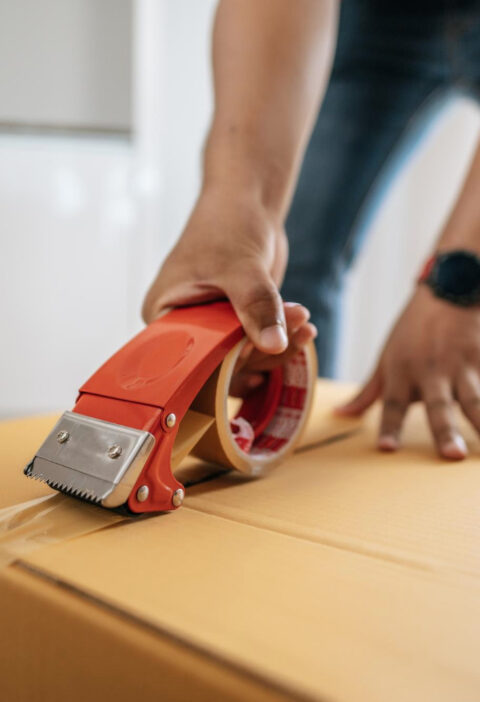The average cost of paving a driveway ranges between $3 and $15 per square foot. Some of the factors that may influence the final price are material selection, driveway size, and specific installation requirements.
Premium materials may increase the cost to $30 per square foot, whereas more economical options start as low as $1. Additional factors such as distinctive designs or excavation can further escalate the costs. However, with calculated labor and installation expenses, homeowners or businesses can realistically expect to spend between $2,000 to $7,000 on driveway paving projects.
This article delves into costs, comparisons, and other essential information, to help businesses and homeowners make informed decisions when selecting an asphalt paving contractor.
Asphalt vs. Concrete Driveways: What’s Cheaper?
According to our research, concrete is cheaper. Initial costs for concrete driveways range from $4 to $8 per square foot. In contrast, asphalt driveways typically range from $7 to $13 per square foot.
Before you decide to go with asphalt or concrete it’s important to know that price is not always the most important factor, especially if you’re looking to make a long-term investment. True, concrete is cheaper, but asphalt is a more popular choice thanks to its superior performance.
Homeowners and businesses that want their premises to give the right impression should weigh the advantages of each material. For instance, asphalt driveways require more frequent maintenance, including surface resealing every 2 to 5 years the cost of which may range from $1 to $2 per square foot. Similarly, concrete driveways demand spot cleaning for issues like oil stains, which typically do not cost much and can be efficiently maintained with power washing.
The climate of the area you live in should also be taken into consideration too as asphalt is much better suited for colder weather. While concrete is more cost-effective upfront, the long-term maintenance expenses and climate resilience can make a huge difference. So if you’re looking for a balance between affordability, durability, and climate suitability, you should first evaluate the specific needs of your location and then decide on the material.
Frequency of Repairs?
The number and frequency of repairs depends on several factors, including the quality of the initial installation, local climate conditions, and the amount of traffic the driveway receives. Here are some general guidelines:
Quality of Installation
A well-constructed black top driveway or asphalt driveway lasts from 15 to 30 years or more. If the base is properly prepared, with adequate drainage, and high-quality materials the driveway will last longer.
Climate
Extreme temperature fluctuations or heavy rainfall, freezing and exposure to UV rays can make the asphalt susceptible to wear and tear. And this especially goes for regions with severe winters where it may lead to cracks and potholes.
Traffic Load
The amount and type of traffic the driveway sustains play a significant role. A residential driveway generally experiences less wear than a commercial or heavily trafficked driveway.
Maintenance
It’s possible to extend the life of an asphalt driveway with regular maintenance. You just need to make sure to periodically protect it against moisture penetration by appying crack sealant to address small cracks before they worsen. This way your driveway will most definitely last longer.
How Much Does it Cost to Redo a Driveway?
The cost of redoing a driveway varies based on the type of project. Complete replacement is the most expensive, involving breaking up the old driveway, costing $1 to $3 per square foot for removal, plus the new driveway’s average price.
Widening or extending a driveway can range from $2 to $15 per square foot, with additional costs for excavation. Resurfacing, the least expensive option for driveways in good condition, ranges from $1 to $10 per square foot, depending on the material. The overall expense depends on the specific project, material, and site conditions.
Asphalt Driveway Thickness
For standard two-car driveways, a 2-inch thickness of asphalt is generally sufficient for most homeowners. However, if heavier vehicles like RVs or equipment will be parked, additional asphalt may be necessary.
The crucial factors for longevity are proper grading and underlay work. If uncertain about these aspects, consulting a professional is advisable to ensure a durable and well-constructed driveway that can withstand varying vehicle weights and usage.
Other Expenses and Considerations
Whether you’re a business owner or homeowner, considering other factors that may impact the overall expenses of your project is important. Labor costs for instance, may go from $5 to $7 per square foot. They tend to escalate depending on whether there will be a need of more extensive excavation or additional grading requirements.
Additional expenses may include clearing land during surface preparation, installing a heated or widened driveway, gate installation, as well as the costs associated with sealant application and ongoing maintenance. It’s important to account for these factors to ensure an accurate and comprehensive budget for the entire asphalt driveway project.







